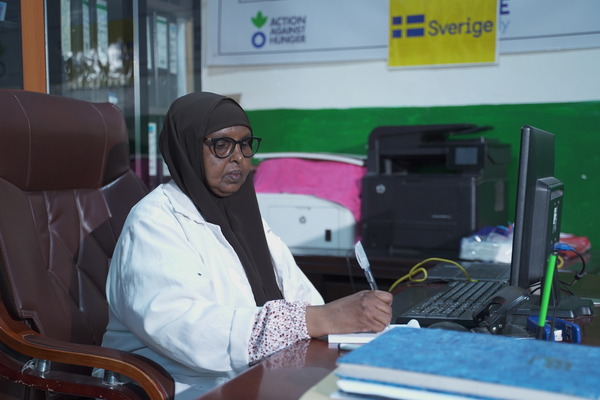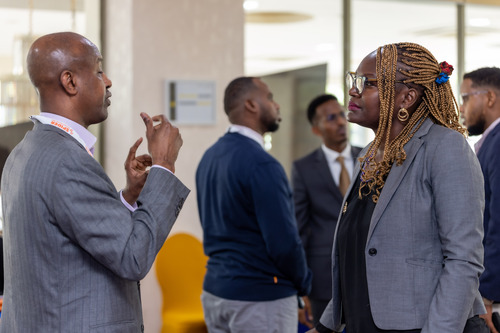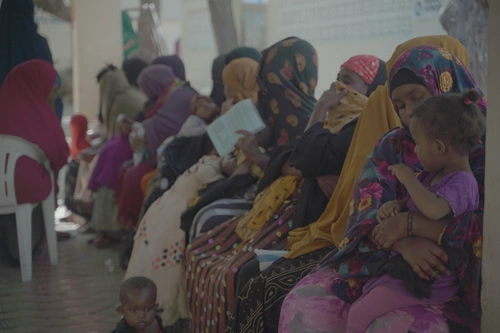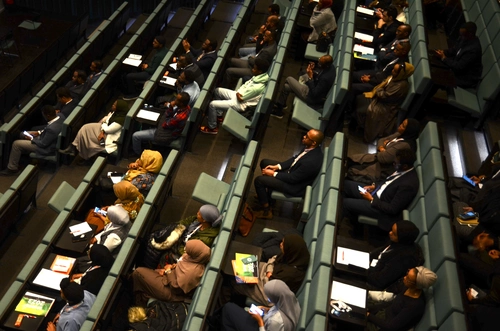Radical Ownership
Leading the design, implementation, and long-term success of development efforts
Radical ownership means local stakeholders take full responsibility and lead the design, implementation, and long-term success of development efforts. In international development, it goes beyond token involvement—giving real decision-making power to communities to shape their own future. This approach is especially crucial in digital transformation. For systems to be effective and sustainable, they must be rooted in the local context—technically, culturally, and institutionally. Without local leadership and trust, even well-designed tools can fail.
HADDA is built on this belief. Rather than delivering solutions to Somalia, the programme enables Somali actors to lead their own digital health transformation. From governance and implementation to research and diaspora engagement, local ownership is at the heart of the work. Guided by the SPIDER model, HADDA emphasises trust, transparency, and long-term systems thinking—hallmarks of radical ownership in action.

Ministry of Health: Leading and Owning the Transformation
The Ministry of Health—both nationally and regionally—is not just involved in HADDA; together with SPIDER, it leads the programme. From setting priorities to guiding day-to-day implementation, the Ministry is at the forefront of Somalia’s digital health transformation. With ongoing technical support and guidance from SPIDER, the Ministry coordinates activities, makes strategic decisions, and ensures that all efforts align with national health goals. This includes leading the selection of clinics and driving the rollout of the RAAD electronic health record system across the country. This joint approach reflects true ownership. While SPIDER provides trusted support, it is the Ministry that directs the process—ensuring the work is rooted in Somali leadership, aligned with national priorities, and built to last. Together, they are shaping a digital health system designed in Somalia, for Somalia.

NomadiLab: The Implementing Partner Championing Local Contexts
Nomad Innovation Lab (NomadiLab), a Somali-Swedish diaspora organisation, embodies radical ownership through its deep contextual knowledge and technical capacity. Initially brought in for their IT expertise and local trust, they have grown into a full implementation partner. Under SPIDER’s mentorship, NomadiLab assumed responsibility for procurement, navigating complex regulations to ensure sustainable, local solutions. By sourcing ICT equipment closer to health facilities and engaging Somali service providers, NomadiLab has aligned with radical ownership principles—enhancing sustainability, reducing costs, and creating local jobs. Their transition from technical contractor to decision-maker showcases the potential of diaspora-led, locally-rooted implementation models.

SIDRA: Evidence-Based Accountability Through Local Research
SIDRA Institute, the research partner in HADDA, plays a crucial role in ensuring that project implementation is grounded in evidence. Through ongoing monitoring and evaluation, SIDRA provides real-time feedback that directly informs project decisions—from system functionality to end-user experience. By embedding M&E within local institutions, HADDA reinforces ownership of data and learning. SIDRA’s active participation in steering committees and coordination groups ensures continuous engagement and adaptability. This reinforces a cycle of learning where Somali researchers are not just observers, but agents of change and accountability.

The Diaspora: Bridging Worlds Through Connect Somalis
HADDA’s diaspora initiative, Connect Somalis, is a bold effort to harness the untapped potential of a global community united by shared heritage. The program links professionals abroad with counterparts on the ground through webinars, knowledge exchanges, and strategic partnerships—fueling innovation and mutual learning. Though still evolving, the initiative embodies radical ownership by broadening the meaning of “local” to include a transnational identity. The diaspora is not positioned as a donor or outsider but as a vital part of the region’s human capital. As the platform grows, so does its ability to build bridges between global expertise and local priorities.
